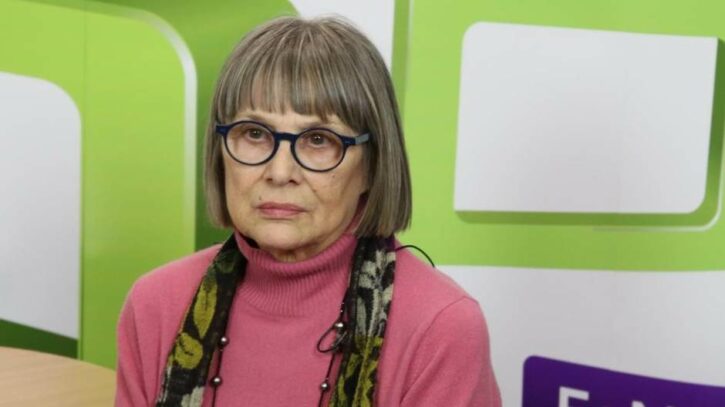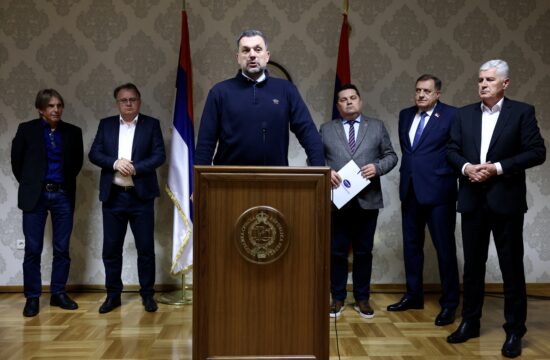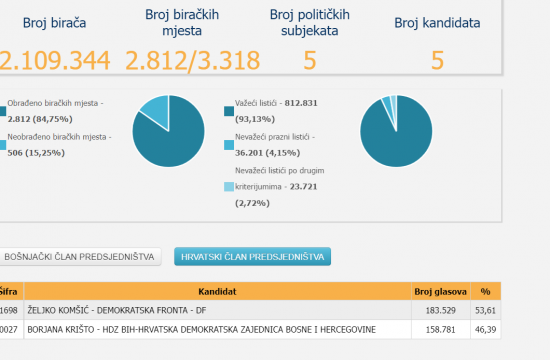
Extremism is becoming increasingly strong in Serbia and 30 years since the beginning of the war it remains focused on contesting mass crimes, the president of Belgrade's Humanitarian Law Fund, Natasa Kandic, says in Sunday's issue of Vecernji List daily.
Although the contesting of war crimes is stronger by the day, institutions are not responding, says Kandic, who was physically assaulted recently at the launch of a book by Vojislav Seselj, the Serbian Radicals’ leader convicted by the Hague war crimes tribunal.
The launch of his “There was no genocide in Srebrenica” was held in Belgrade on Wednesday and no one is talking about the book or Seselj's messages, the Croatian newspaper says. The public in Serbia and the entire region is talking about the attack on Kandic and her colleagues who arrived at the book launch with a file entitled “Crimes against Croats in Vojvodina”, Vecernji adds.
The paper recalls that the International Criminal Tribunal for the former Yugoslavia sentenced Seselj to 10 years’ imprisonment for crimes against Croats and other non-Serbis in the northern Serbian province of Vojvodina in the 1990s.
“We didn't want to impose our political positions but present the facts that were presented in the rulings in The Hague and the region. But extremists no longer have any brakes. They feel they can do whatever they want with those who think differently. Seselj's order was that they throw us out. They could have crushed us and it's especially worrying that among them was a large number of young people,” Kandic has told Vecernji List.
She says that by attending the book launch, she wanted to remind the Serbian public of the truth established by courts, that genocide was committed in Srebrenica, and of the crimes against Vojvodina Croats.
“It has become normal in state institutions to deny that Serbia complied with the Hague tribunal's requests for the arrest of those accused of genocide. And now, several years later, we have an institutional turnaround via high and lower-rank politicians to abandon the decision to recognise legally-established facts,” Kandic says.
Such political interpretations have never been stronger or spread more than now, which has encouraged extremist groups to freely carry out their alternative investigations, she added.




